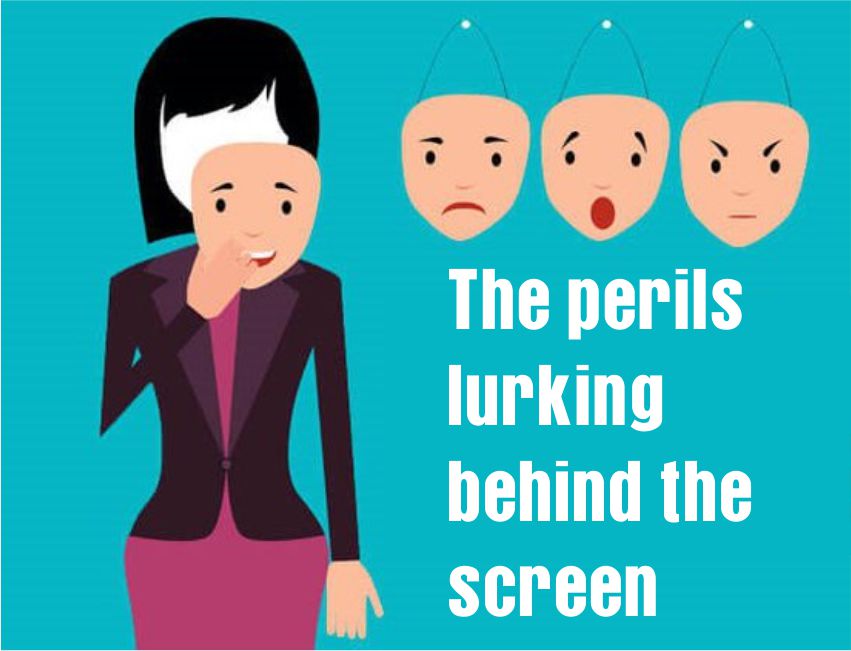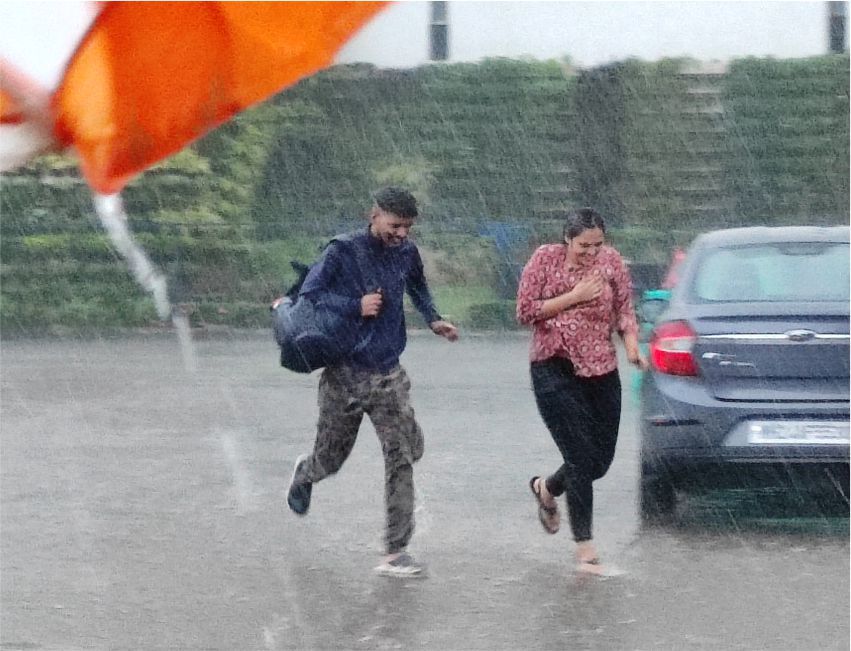The perils lurking behind the screen

- Varda Sharma
- 08 May, 2024
In the interconnected world of social media, where virtual relationships flourish at the click of a button, the allure of online friendships can be captivating. Yet, beneath the glossy surface of curated profiles and engaging conversations lie inherent risks and dangers that demand our attention and caution. As we immerse ourselves in the digital realm, it is imperative to acknowledge and navigate the potential hazards posed by forging connections in the virtual landscape.
Online friendships, while offering opportunities for socialization and camaraderie, often lack the depth and authenticity inherent in face-to-face interactions. Behind the veil of anonymity, individuals may project idealized versions of themselves, obscuring their true identities and intentions. This discrepancy between perception and reality lays the groundwork for deception and manipulation, leaving unsuspecting individuals vulnerable to exploitation and harm.
One of the most prevalent dangers of online friendships is the proliferation of scams and fraudulent schemes. Predators masquerading as friends may employ sophisticated tactics to gain trust and exploit vulnerabilities for financial gain. From romance scams to elaborate Ponzi schemes, the spectrum of online deception knows no bounds, preying on the naivety and trust of unsuspecting victims.
Moreover, the anonymity afforded by the digital realm emboldens individuals to engage in risky or malicious behaviour with impunity. Cyberbullying, harassment, and malicious trolling are all too common occurrences in online spaces, where the absence of face-to-face accountability fosters a culture of impunity. The psychological toll of such behaviour can be devastating, leaving lasting scars on the mental and emotional well-being of victims.
Furthermore, the boundaryless nature of online friendships blurs the lines between the public and private spheres, exposing individuals to potential privacy breaches and security threats. Sharing personal information and intimate details with virtual acquaintances carries inherent risks, as malicious actors may exploit vulnerabilities to gain unauthorized access to sensitive data or perpetrate identity theft.
In the age of social media, where validation is often measured in likes and followers, the quest for popularity and acceptance can lead individuals down a perilous path of seeking validation from strangers online. The pressure to maintain a carefully curated online persona can fuel feelings of inadequacy and self-doubt, exacerbating mental health issues such as anxiety and depression.
Despite these inherent risks, it is crucial to recognize that online friendships are not inherently nefarious. For many, the digital landscape serves as a lifeline to connect with like-minded individuals, forge meaningful relationships, and access support networks otherwise inaccessible in their physical surroundings. The key lies in exercising discernment, setting boundaries, and approaching online interactions with a healthy dose of skepticism.
Education and awareness play a pivotal role in mitigating the risks associated with online friendships. Empowering individuals with the knowledge and skills to identify red flags, protect their privacy, and navigate digital spaces responsibly is paramount in fostering a safer online environment. Parents, educators, and policymakers alike must prioritize digital literacy and cyber safety education to equip individuals with the tools to navigate the complexities of the digital age.
While online friendships offer opportunities for connection and community, they also present inherent risks and dangers that cannot be ignored. As we navigate the digital landscape, it is incumbent upon us to exercise caution, cultivate critical thinking skills, and prioritize safety and security in our online interactions. By fostering a culture of digital responsibility and resilience, we can harness the potential of online friendships while mitigating the perils lurking behind the screen.




